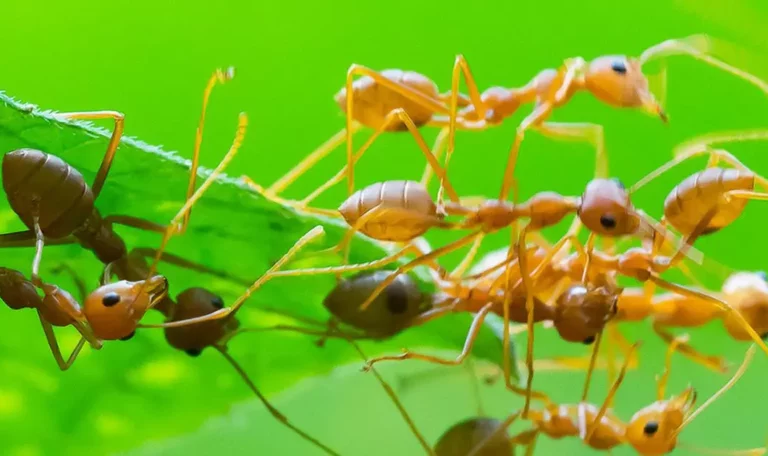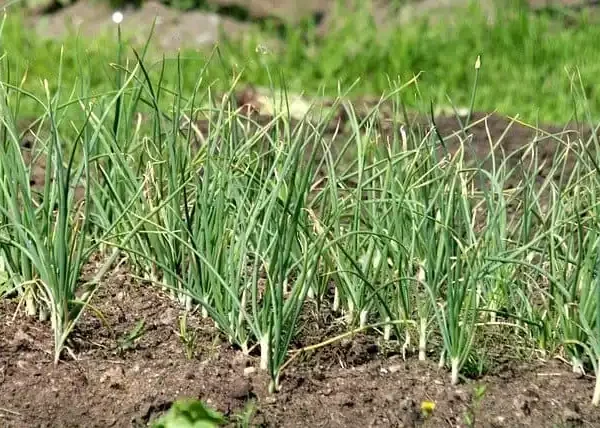Ants can be a persistent nuisance in homes and gardens, but certain plants are known to naturally repel them. Incorporating these ant-repelling plants into your landscaping can help deter ants and keep your outdoor spaces ant-free.
Peppermint (Mentha × piperita)
Peppermint’s strong scent is disliked by ants, making it an effective natural repellent. Plant peppermint in pots or around entryways to deter ants from entering your home.
Lavender (Lavandula spp.)
Lavender’s aromatic fragrance not only delights humans but also repels ants. Plant lavender in sunny areas of your garden or near windows to keep ants at bay.

Rosemary (Rosmarinus officinalis)
Rosemary’s pungent scent acts as a natural deterrent for ants. Plant rosemary bushes around outdoor seating areas or near ant entry points to discourage them.
Chrysanthemums (Chrysanthemum spp.)
Chrysanthemums contain a natural insect-repelling compound called pyrethrin, which can deter ants. Use chrysanthemums in landscaping to create a barrier against ants.
Mint (Mentha spp.)
Mint’s refreshing scent is disliked by ants, making it an effective repellent. Plant mint in containers or along ant trails to deter them from invading your home.
Catnip (Nepeta cataria)
Catnip contains a compound called nepetalactone, which repels ants. Plant catnip in your garden to help keep ants away from your plants and home.
Tansy (Tanacetum vulgare)
Tansy contains compounds that repel ants and other pests. Plant tansy in borders or containers around your home to deter ants from entering.
Lemon Balm (Melissa officinalis)
Lemon balm’s citrusy scent acts as a natural ant repellent. Plant lemon balm in pots or in garden beds to help keep ants away.
Marigolds (Tagetes spp.)
Marigolds emit a scent that ants find unpleasant. Plant marigolds in sunny areas of your garden to deter ants and add color to your landscape.
Garlic (Allium sativum)
Garlic’s strong odor is disliked by ants, making it an effective natural repellent. Plant garlic around the perimeter of your garden or near ant entry points to discourage them.
Pennyroyal (Mentha pulegium)
Pennyroyal’s strong fragrance repels ants and other pests. Plant pennyroyal in pots or as a ground cover to help keep ants away from your home.
Basil (Ocimum basilicum)
Basil’s strong aroma is disliked by ants, making it an effective natural repellent. Plant basil in containers or in garden beds to deter ants from entering your home.
Sage (Salvia officinalis)
Sage’s aromatic leaves emit a scent that ants find unpleasant. Plant sage in sunny areas of your garden to help deter ants and add flavor to your cooking.
Lemon Thyme (Thymus citriodorus)
Lemon thyme combines the ant-repelling properties of thyme with a citrusy scent. Use it in landscaping or in pots around outdoor seating areas to deter ants.
Bay Leaves (Laurus nobilis)
Bay leaves contain compounds that repel ants. Scatter dried bay leaves around ant entry points or use fresh bay leaves in cooking to help keep ants away.
While planting these ant-repelling plants can help reduce ant infestations, it’s essential to combine them with other preventive measures such as sealing entry points, keeping surfaces clean, and eliminating food sources. Additionally, consult with local horticultural extension offices or entomology departments for region-specific advice on ant control strategies.
- Lip Filler London – Lip Augmentation & Natural Lip Enhancement - December 16, 2025
- Tennessee’s THC Beverage Market - June 5, 2025
- Top THC Infused Seltzers in Delaware - June 5, 2025




